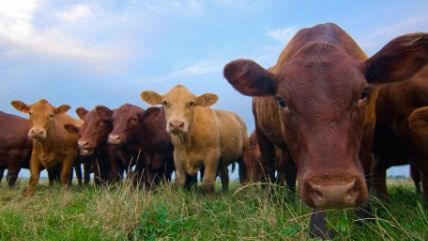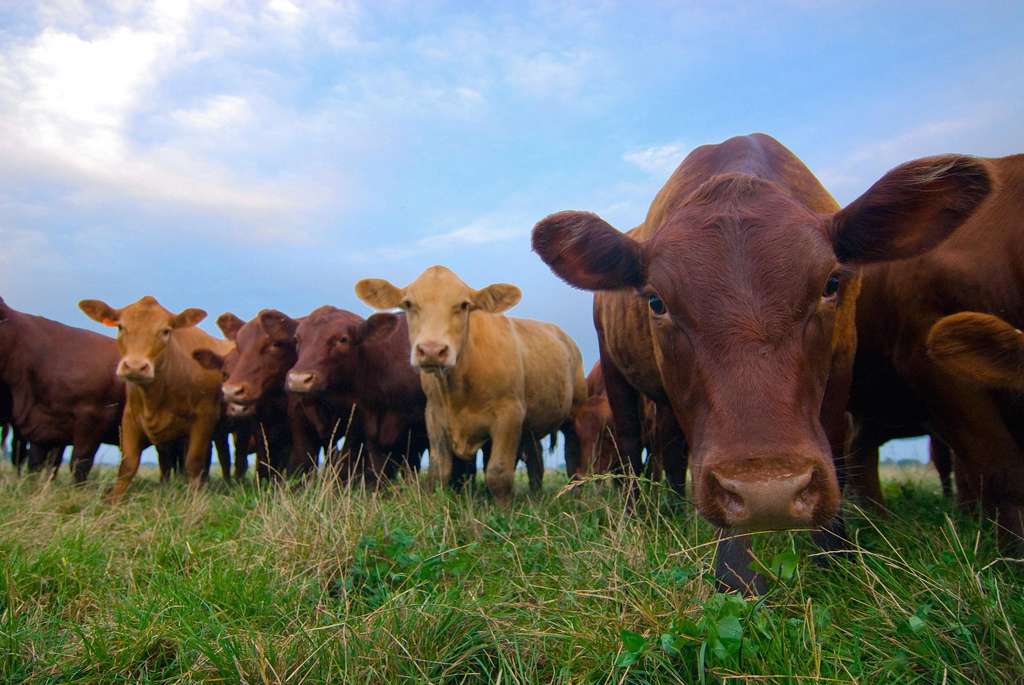The USDA's Abdication of Defining 'Grass-Fed' Is Good For Consumers
The label failed to earn the support of farmers, ranchers, and customers.


Earlier this week, in a surprise move, the Agricultural Marketing Service (AMS), part of the U.S. Department of Agriculture (USDA) revoked its approval process for use of its "grass-fed" beef marketing label.
Many supporters of grass-fed beef expressed alarm over the change.
"USDA is revoking a label standard that had widespread farm and consumer support," says Ferd Hoefner of the National Sustainable Agriculture Coalition. "Actions such as this take us into a Wild West situation, where anything goes and both farmers and consumers lose."
But Nicolette Hahn Niman, an environmental lawyer and author who's also the wife of celebrated pioneer of grass-fed beef Bill Niman, said the change was unlikely to harm farmers and ranchers who use the method.
"This will probably serve to further erode consumer confidence in the Grassfed label but seems unlikely to harm farmers or ranchers," she says.
The term "grass fed" (as opposed to grain fed) generally refers to meat obtained from cows that were raised, after weaning, on a diet of grass (and other forage, like clover) situated in pasture and, when fresh grass is unavailable, hay. Cows eat grass naturally. But farmers have long known—and most Americans have come to prefer and expect—that cows can eat grains like corn.
In recent years, though, a growing number of Americans have come to prefer pastured beef. As a result, grass-fed beef makes up a small (but growing) percentage of overall beef sales.
The USDA grass-fed standards were established in 2007. But confusion has followed the standards in the years since they were first established. Consequently, it appears that only four grass-fed beef producers around the country used the USDA standard.
In a notice in the Federal Register on Tuesday, the USDA acknowledged the confusion, announcing its grass-fed label "does not facilitate the marketing of agricultural products in a manner that is useful to stakeholders or consumers."
Even in the wake of its announcement, the USDA will still regulate the labeling process for grass-fed beef products (which, like all USDA-regulated food labels, must be approved by the agency before they go to market). It's just that the agency will no longer define the term.
Who will determine what grass fed means? USDA says that the handful of users of its grass-fed label must now do one of three things. First, they can adopt the USDA's existing standard as their own. Second, they can develop their own standard. Or, third, they can rely on an existing grass-fed standard.
That third option refers to private labeling standards.
Private bodies that certify beef as having been raised on grass already exist. They include American Grassfed, the Food Alliance, and Animal Welfare Approved.
Notably, these private certifiers have been among those who pointed out many of the limitations of the USDA standards.
"The USDA definition does a good job of defining what grassfed animals can and cannot be fed," the Food Alliance writes. "But it does not deal with other issues consumers care about—like the use of hormones and antibiotics, confinement of animals, and environmental stewardship."
The USDA standards failed to guarantee animals would be raised chiefly in pastures—rather than indoors throughout their lifetime, Animal Welfare Approved noted in comments criticizing the USDA grass fed rules in 2009.
The USDA's admission that its now-scuttled rules didn't serve producers or consumers, along with its reference to private standards, is a rare and wonderful occurrence.
Together, these factors represent a victory for consumers, producers, and private certifiers over government standards. Rather than creating a Wild West atmosphere, though—only four producers across the country actually used the USDA label—the USDA's abdication of its role in grass-fed labeling will help bring order to the market.
Private certification already exists, and it works. If a farmer or rancher raises his cattle purely on a diet of grain, I find it difficult to believe a court would uphold his fraudulent use of a grass-fed label. Furthermore, if a private body were to certify that same farmer as raising grass-fed beef, that certifying body would face the loss of consumer confidence, and might also face litigation from consumers who'd been defrauded by its faulty certification.
That's no Wild West. Rather, it's what I lauded several years ago as the growing success of private labeling. Farmers, ranchers, and consumers should celebrate—not fear—this success.


Show Comments (19)